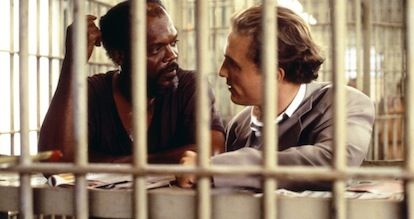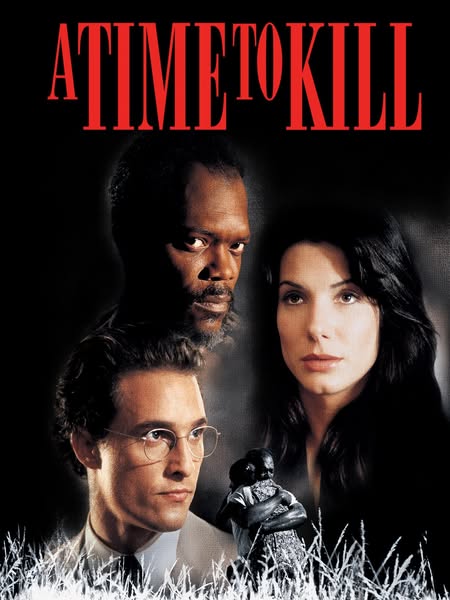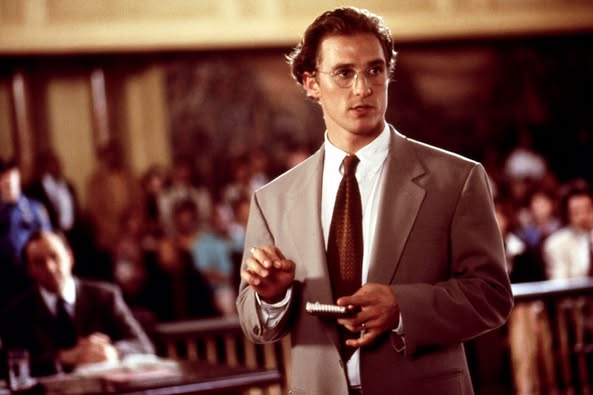A Time to Kill (1996)

A Time to Kill (1996), directed by Joel Schumacher, is a powerful legal drama based on John Grisham’s novel of the same name. Set in the racially charged atmosphere of Mississippi, the film explores themes of justice, morality, and the complexities of race relations in America.’
The story centers around Carl Lee Hailey (Samuel L. Jackson), a black man who takes the law into his own hands after his young daughter is brutally raped and left for dead by two white men. In a moment of desperation and fury, Carl Lee murders his daughter’s attackers, leading to his arrest and trial. The case attracts significant media attention and ignites a firestorm of racial tension in the community.

Matthew McConaughey stars as Jake Brigance, the idealistic young attorney who agrees to defend Carl Lee, despite the immense personal and professional risks involved. As the trial unfolds, Jake faces not only the legal challenges of the case but also the deep-seated prejudices of the community and the threats against his own family. His journey becomes a moral battleground, forcing him to confront his beliefs about justice and the law.
The film’s narrative is gripping, combining courtroom drama with intense emotional moments. It raises questions about the nature of justice and whether the legal system can truly deliver fairness in a society marked by racial inequality. The performances, particularly by Jackson and McConaughey, are compelling, capturing the emotional weight of their characters’ struggles.

Kiefer Sutherland and Sandra Bullock provide strong supporting performances, adding depth to the film’s exploration of morality and ethics. Sutherland portrays the antagonist, a racist member of the community, while Bullock plays Jake’s assistant, who offers both emotional support and a voice of reason.
Visually, A Time to Kill effectively captures the tension of the setting, using cinematography that enhances the emotional stakes of the story. The film’s pacing builds suspense as it moves toward its dramatic conclusion, culminating in a powerful jury summation that challenges viewers to reflect on their own beliefs about justice and empathy.

In conclusion, A Time to Kill is a thought-provoking film that delves into the complexities of race, justice, and morality. With its strong performances, gripping narrative, and relevant themes, it remains a significant entry in the genre of legal dramas. The film not only entertains but also encourages critical reflection on the societal issues it portrays, making it a timeless exploration of human nature and the quest for justice.











